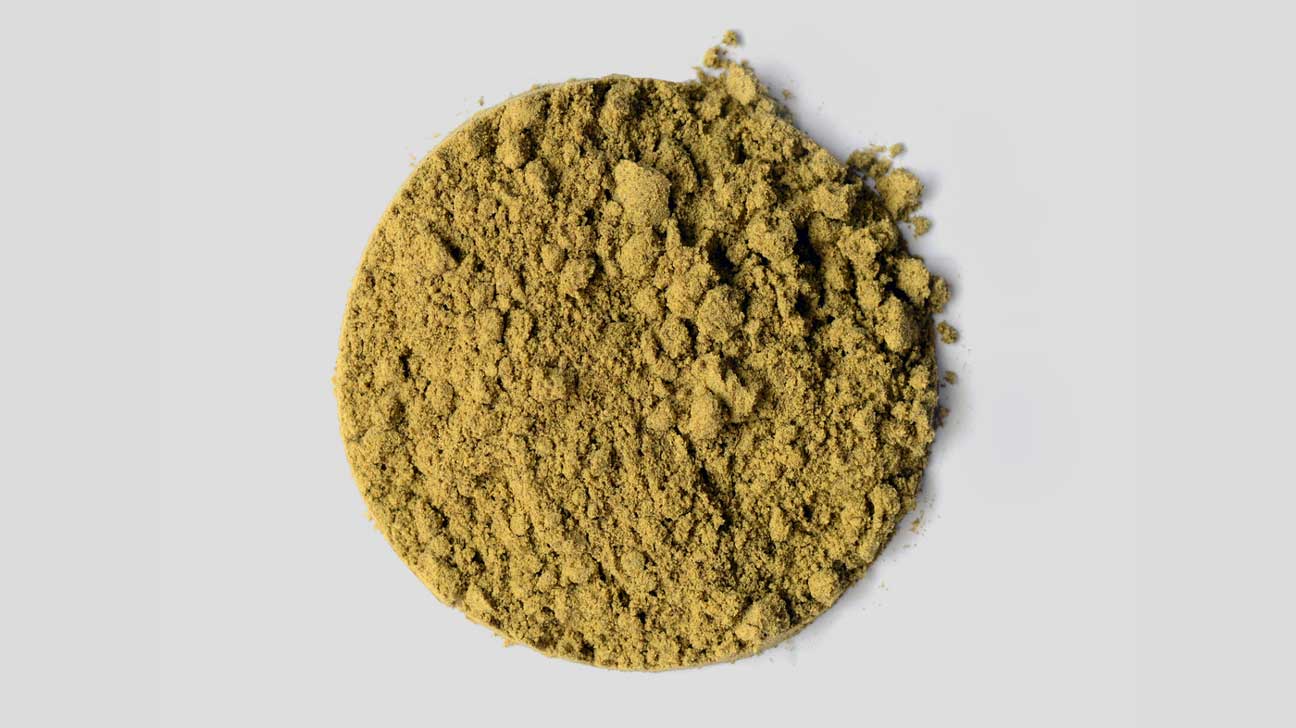How to use hemp protein powder for weight loss
Hemp protein is a plant-based protein that is made from the seeds of the hemp plant. It is a complete protein, meaning that it contains all nine essential amino acids. These amino acids can not be made human body cannot produce on its own. Hemp protein is also a good source of fiber, omega-3 fatty acids, and vitamins and minerals.
Hemp protein promoters claim that it boosts metabolism and helps people lose weight, burn fat, and build muscle. Some people who take hemp protein for weight loss say it helps them to feel more satisfied and less hungry, and reduces their sugar cravings. It is acceptable to vegetarians and vegans and safe for people with sensitivities to dairy, soy, and eggs who want to increase their protein and fiber intake for weight loss.
Several scientific studies provide insights into this. A study published in the Journal of Nutrition in 2019 found that diets high in protein could help increase feelings of fullness, thus potentially helping to control calorie intake and promote weight loss. Given that hemp protein powder is a rich source of protein, it could be argued that it may indirectly aid in weight management.
However, it's essential to remember that weight loss is a multifaceted process, dependent on numerous factors, including diet, physical activity, sleep, and genetic factors. So, while hemp protein powder may help, it's not a standalone solution.

Exploring the Weight Loss Potential of Hemp Protein Powder
The hype around hemp protein powder's weight loss potential may stem from its rich protein content. Protein is known to support weight loss as it enhances satiety, reduces hunger, helps build lean muscle, and increases calorie burning during digestion.
Moreover, hemp protein powder is packed with fibre. Dietary fibre not only aids in digestion but also helps to keep you full, reducing the tendency to overeat. A 2013 review in the Journal of the American Heart Association noted that higher intake of dietary fibre could help with weight management.
However, hemp protein powder is not a magical weight loss pill. It can play a role within a balanced diet and regular exercise regimen, but it cannot replace these essential components of a healthy lifestyle.

Understanding How Hemp Protein Powder Supports Weight Management
One key way hemp protein powder may support weight loss is by increasing feelings of fullness. Both protein and fibre, which hemp protein powder is rich in, are known to enhance satiety. By reducing feelings of hunger, you're less likely to consume excess calories, supporting weight management.
1. Increases satiety
Hemp protein is a good source of fiber, which can help to increase satiety, or the feeling of fullness. This can help you to eat less calories .
2. Reduces appetite
Hemp protein contains compounds that may help to reduce appetite. Compounds such as arginine and glutamine.

3. Boosts metabolism
Hemp protein contains essential amino acids. These are needed for muscle growth and repair. Muscle tissue burns more calories than fat tissue. So increasing muscle mass can help to boost metabolism and promote weight loss.

4. Improves insulin sensitivity
Hemp protein may help to improve insulin sensitivity. This can help to regulate blood sugar levels and promote weight loss.
A Powerful Ally in Your Weight Loss Journey: Harnessing the Benefits of Hemp Protein Powder
Hemp protein powder, as part of a balanced diet and active lifestyle, can indeed be a powerful ally in your weight loss journey. Its high protein and fibre content, coupled with a rich assortment of essential nutrients, make it an excellent addition to your diet.
But remember, it's not a miracle cure for weight loss. It's just one component of a broader strategy. Consuming hemp protein powder alone without making other changes to your lifestyle is unlikely to lead to significant weight loss.
However, when paired with regular exercise, adequate hydration, balanced meals, and enough sleep, hemp protein powder can offer valuable support to your weight loss goals.

How Hemp Protein Powder Fits into a Weight Loss Plan
Incorporating hemp protein powder into a weight loss plan is straightforward. You can mix it into smoothies, bake it into healthy desserts, or sprinkle it onto your breakfast cereal. It provides a significant protein boost to your meals, helping to keep you fuller for longer and supporting muscle growth.
1. Choose a high-quality hemp protein powder
Not all hemp protein powders are created equal. Look for a powder that is made from organic, cold-pressed hemp seeds, such as Cantein.
2. Start with a small amount and gradually increase the amount as needed
It is very unlikely hemp protein will cause any adverser reactions. However, it is important to start with a small amount and increase the amount as needed.
3. Combine it with other healthy foods and drinks
Hemp protein can be added to a variety of foods and drinks, such as smoothies, yogurt, and oatmeal. This can help you to get the most out of the protein and make it more enjoyable to consume.
4. Be patient
It takes time to lose weight. Do not expect to see results overnight. Be consistent with your use of hemp protein and other healthy habits. Do this and eventually reach your weight loss goals.

Satiety and Satisfaction: How Hemp Protein Powder Can Help Control Cravings and Overeating
The fibre and protein in hemp protein powder work synergistically to enhance feelings of fullness. This is key for weight loss, as feeling satiated can help curb snacking and overeating, common culprits of weight gain.
A 2014 study published in the Journal of Nutrition showed that increased protein consumption could lead to reduced daily energy intake and increased satiety. However, it's crucial to balance your diet, ensuring you're getting a variety of nutrients from different food sources, not just hemp protein powder.
Maximising Metabolism: How Hemp Protein Powder Boosts Calorie Burning
Another reason hemp protein powder might aid in weight loss is its potential to boost metabolism. This effect arises from protein's thermic nature – it takes more energy (calories) to digest protein than other nutrients.
This metabolic boost, coupled with the muscle-building potential of protein, means that hemp protein powder could play a role in increasing your body's energy expenditure, supporting weight loss.

Hemp Protein Powder for Optimal Nutrition and Weight Control
Hemp protein powder is a nutrient-dense food. It's not just high in protein and fibre, but it's also packed with essential fatty acids, magnesium, iron, and antioxidants. These nutrients collectively contribute to overall health, and a healthy body is better equipped to manage weight effectively.
However, the key to weight control is not just in the nutrient density of a single food but in the overall balance of your diet. Incorporating nutrient-dense foods like hemp protein powder into a balanced diet can enhance your nutritional status while helping manage your weight.
Incorporating Hemp Protein Powder into a Successful Weight Loss Regimen
Hemp protein powder can be added to your diet in various ways. Here are some practical tips:
1. Add it to your smoothies for a protein boost. A combination of berries, spinach, hemp protein powder, and almond milk can make a nutrient-rich, satisfying meal.
2. Use it in baking. Hemp protein powder can be used to make protein-rich muffins, pancakes, or bread.
3. Mix it into your oatmeal. It adds a protein punch and a slightly nutty flavour to your breakfast.
By using hemp protein powder as part of a comprehensive weight loss plan, and not as a standalone solution, you'll be taking a sustainable, balanced, and effective approach to reaching and maintaining your ideal weight.
In addition, we have put together 4 tips for you to incorporate hemp into your everyday life with little effort.
1. Replace flour with hemp protein - In daily cooking, normal flour can be replaced with up to 30% through Hemp Protein can be replaced. This significantly reduces the calorie content of the food and increases the proportion of protein and fibre. In addition, the high protein and dietary fibre content provides a faster feeling of satiety.
2. Snacking, but healthy/Hemp instead of crisps & chocolate - A common culprit for increased calorie intake is the gusto in between without a real feeling of hunger. To appease this with a high-quality source of nutrients, it helps to have already prepared snacks with hemp at hand, such as ready-made hemp chips and chocolate. Hemp Crunchies or simply and quickly prepared Hemp energy balls and hearty Hemp oil popcorn.
Replacing meals with hemp shakes - Sometimes hunger is not that big, but out of habit a whole meal is consumed anyway. Instead, you can replace this with a Hemp Protein Shake and thus reduce the consumption of carbohydrates.
3. CBD oil as an appetite suppressant - CBD and other cannabinoids are similar to substances in the endocannabinoid system (ECS), a part of the nervous system in the human body. The ECS influences many control processes, including appetite, digestion and metabolism. CBD oil can have an appetite suppressing effect and help to bring the ECS back into balance when it is disturbed.

Conclusions
Most adults can easily get enough protein through food sources without drinking protein shakes. That said, hemp protein shakes can be a delicious way to add extra protein to your diet. If you’re trying to lose or manage weight, hemp protein from shakes may help you feel less hungry. It may also help you maintain muscle and metabolism and lower the likelihood of regaining lost fat, especially when combined with an exercise routine.
References:
Bo S, et al. (2020). A critical review on the role of food and nutrition in the energy balance.
https://www.ncbi.nlm.nih.gov/pmc/articles/PMC7231187/
Dahlberg CJ, et al. (2017). A 13-week low glycemic load diet and lifestyle modification program combining low glycemic load protein shakes and targeted nutraceuticals improved weight loss and cardio-metabolic risk factors.
https://cdnsciencepub.com/doi/pdf/10.1139/cjpp-2016-0704
de Carvalho KMB, et al. (2020). Dietary protein and appetite sensations in individuals with overweight and obesity: A systematic review.
https://pubmed.ncbi.nlm.nih.gov/32648023/
Dhillon J, et al. (2016). The effects of increased protein intake on fullness: A meta-analysis and its limitations.
https://www.jandonline.org/article/S2212-2672(16)00042-3/fulltext
Farinon B, et al. (2020). The seed of industrial hemp (Cannabis sativa L.): Nutritional quality and potential functionality for human health and nutrition.
https://www.ncbi.nlm.nih.gov/pmc/articles/PMC7400098/
Galbreath M, et al. (2018). Effects of adherence to a higher protein diet on weight loss, markers of health, and functional capacity in older women participating in a resistance-based exercise program.
https://www.ncbi.nlm.nih.gov/pmc/articles/PMC6115985/
Haghighat N, et al. (2020). The effect of 12 weeks of euenergetic high-protein diet in regulating appetite and body composition of women with normal-weight obesity: A randomised controlled trial.
https://pubmed.ncbi.nlm.nih.gov/32513334/
Hertzler SR, et al. (2020). Plant proteins: Assessing their nutritional quality and effects on health and physical function.
https://www.ncbi.nlm.nih.gov/pmc/articles/PMC7760812/
Kim JY. (2021). Optimal diet strategies for weight loss and weight loss maintenance.
https://www.ncbi.nlm.nih.gov/pmc/articles/PMC8017325/
Kohanmoo A, et al. (2020). Effect of short- and long-term protein consumption on appetite and appetite-regulating gastrointestinal hormones, a systematic review and meta-analysis of randomized controlled trials.
https://pubmed.ncbi.nlm.nih.gov/32768415/
Send Inquiry
Related Industry Knowledge
- Phycocyanin E18: The Future of Nutritional Supplements
- Phycocyanin, natural color lead you colorful and healthy life
- Pure Collagen: Powder, Liquid, and Serum
- Benefits of Turmeric and Black Pepper Capsules
- Carob Powder: The Best Recipe Substitute
- Health Benefits of Chlorophyll
- What is E160c as food Additve?
- Benefits of Butterfly Pea Powder for Health and Beauty
- Can Beetroot Boost Our Performance?
- Skin and Hair Benefits of Roselle Extract Powder



